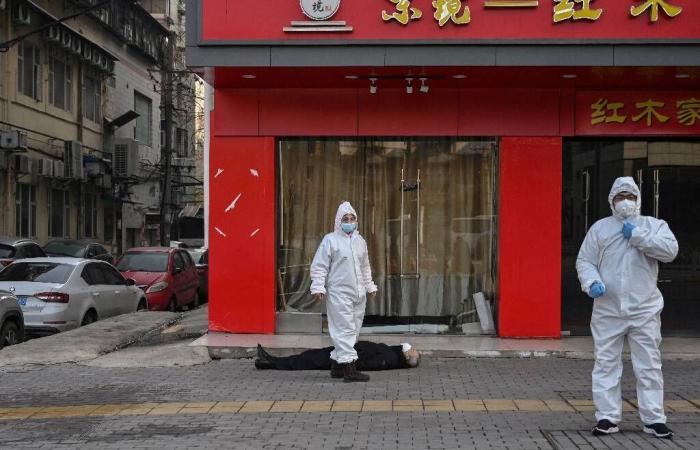Covid-19, which appeared five years ago in the city of Wuhan, in central China, has killed millions of people, undermined the economies of many countries and paralyzed entire health systems.
The WHO issued a statement on Monday again calling on China to share more information about the pandemic to better prepare for future health crises.
The United Nations health agency recalled how, on December 31, 2019, its office in China became aware of a statement from Wuhan health authorities regarding cases of “viral pneumonia” in the city.
“Five years ago (…) China immediately shared with the WHO and the international community information on the epidemic and the gene sequence of the virus,” assured Mao Ning, spokesperson for the ministry on Tuesday. of Foreign Affairs.
“Without any restrictions, we shared our experience in prevention, control and treatment, thereby making a huge contribution to the international community's anti-pandemic work,” she continued, during a press briefing.
But during the Covid-19 pandemic, the WHO has repeatedly criticized Chinese authorities for their lack of transparency and cooperation.
A team of experts led by the WHO and accompanied by Chinese colleagues carried out an investigation into the origins of the pandemic in early 2021.
In a jointly published report, they favored the hypothesis of transmission of the virus by an intermediate animal, from a bat to a human, perhaps on a market. Investigators have since been unable to return to China and WHO officials have repeatedly requested additional data.
“Moral and scientific imperative”
“We continue to call on China to share data and access so that we can understand the origins of Covid-19. This is a moral and scientific imperative. Without transparency, sharing and cooperation between countries, the world cannot adequately prepare for or prevent future epidemics and pandemics,” the WHO said in a statement Monday.
Ms Mao said on Tuesday that “more and more evidence” indicated “that the origins of Covid-19 were global in scope”.
China is “willing to continue to work with various parties to promote scientific research on origins globally and make efforts to prevent potential infectious diseases in the future,” she said.
Earlier this month, WHO Director-General Tedros Adhanom Ghebreyesus questioned whether the world was better prepared for a possible next pandemic.
“The answer is yes and no,” he said during a press conference. “If the next pandemic occurred today, the world would still face the same weaknesses and vulnerabilities that allowed Covid-19 to take hold and spread five years ago,” he added.
“But the world has also learned many painful lessons from the pandemic and taken important steps to strengthen its defenses against future epidemics and pandemics.”
In December 2021, international negotiations began to reach an agreement on prevention, preparation and response in the event of a new pandemic.
The 194 WHO member states negotiating this treaty have agreed on the essentials of what it should contain, but blockages remain on important practical aspects.
An important fault line separates Western countries, with a strong pharmaceutical industry, and poorer countries, which fear being sidelined during the next pandemic.
The obligation to quickly share information on emerging pathogens, crucial for developing vaccines, particularly to fight pandemics, is a crucial point of contention.
The deadline for the end of negotiations is currently set for May 2025.






